第56章 LETTER X(6)
The third import in value is oil; the next Chinese tobacco, the next sugar, the next salt fish, and the next pigs! The Chinese, of course, consume most of what is imported, being in a majority of five to one, and here as elsewhere they carry with them their rigid conservatism in dress, mode of living, food, and amusements, and have a well-organized and independent system of communication with China. It is the Chinese merchant, not the British, who benefits by the rapidly augmenting Chinese population. Thus in the import list the Chinese tobacco, pigs, lard, onions, beans, vermicelli, salted vegetables, tea, crackers, joss-sticks, matches, Chinese candles, Chinese clothing, Chinese umbrellas, and several other small items, are all imported from China.
Having been debited with a debt of 10,000 pounds for war expenses, to be paid off by installments, the finances were much hampered, and the execution of road-making and other useful work has been delayed. This war debt, heavy as it was, was exclusive of 6,000 pounds previously paid off, and of heavy disbursements made to supply food and forage for the British soldiers who were quartered in Sungei Ujong for a considerable time. Apart from this harassing debt, the expenses are pre-eminently for "establishments," the construction of roads and bridges, and pensions to Rajahs whose former sources of revenue have been interfered with or abolished. The sources of revenue are to some extent remarkable, and it is possible that some of them might be altogether abolished if public attention became focussed upon them.
Export duties are levied only on tin, the great product of Sungei Ujong, and gutta-percha. The chief import duty is on opium, and in 1879 this produced 4,182 pounds, or about one-fourth of the whole revenue.
Besides this fruitful and growing source of income, 3,074 pounds was raised in 1879 under the head "Farms;" a most innocuous designation of a system which has nothing to do with the "kindly fruits of the earth" at all, but with spirits, gambling, oil, salt, opium, and a lottery! In other words, the "farms" are so many monopolies, sold at intervals to the highest bidder, the "gambling farm" being the most lucrative of the lot to the Government, and of course to the "farmer"!
The prison expenses are happily small, and the hospital expenses also, owing mainly in the former case to the efforts of the "Capitans China," who are responsible for their countrymen, and in the latter to the extreme healthiness of the climate. The military police force now consists of a European superintendent, ninety-four constables, paid 45s. per month, and twelve officers, all Malays; but as it is Malay nature to desire a change, and it is found impossible to retain the men for any lengthened periods, it is proposed to employ Sikhs, as in Perak.
Sungei Ujong, like the other States of the Peninsula, is almost entirely covered with forests, now being cleared to some extent by tapioca, gambier, and coffee-planters. Its jungles are magnificent, its hill scenery very beautiful, and its climate singularly healthy.